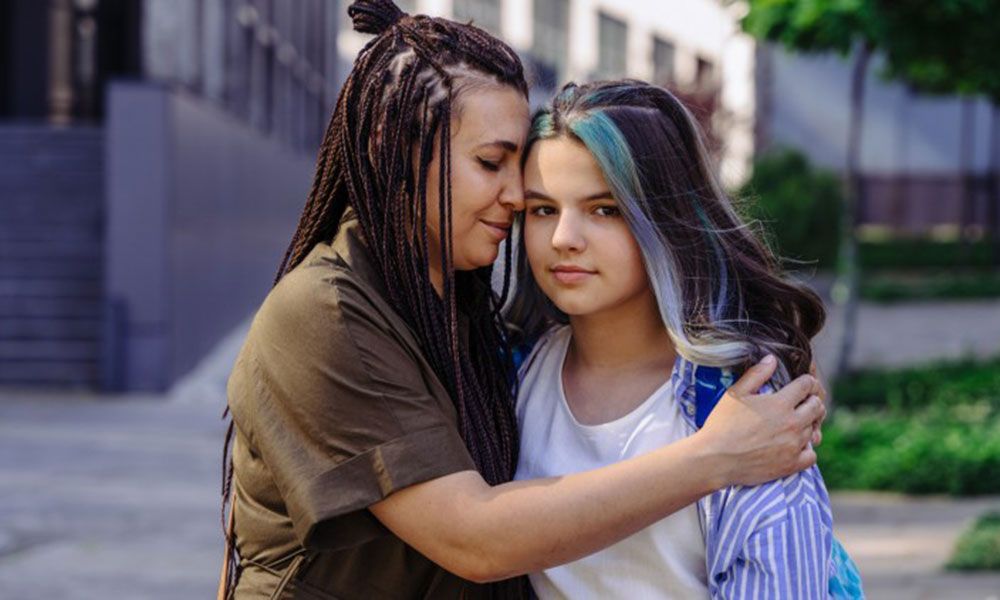Video: Penn State prevention researchers respond to COVID-19

covid-symposium-1
November 23, 2020
When the COVID-19 pandemic radically changed how we live, researchers with Penn State’s Edna Bennett Pierce Prevention Research Center (PRC) responded quickly. In this November 17 seminar, Greg Fosco and Mark Feinberg share insights into how we can help children and families cope through this pandemic and other disruptive events. Taylor Scott shares early findings about how researchers can connect with and inform policymakers via strategic email messaging.
Here’s a brief overview of the video:
Family vulnerability and disruption during the COVID-19 pandemic: Implications for child adjustment
Presenter: Greg Fosco, PRC Associate Director and Associate Professor, Human Development and Family Studies
To understand child emotional and behavioral health outcomes during the COVID-19 pandemic, we looked at data from 204 families from before and during COVID-19 onset in the US to examine pre-existing indications of vulnerability and the impact of disruption to family relationship quality, routines, and parenting quality in relation to children’s adjustment.
Early family prevention programming provides long-term benefits for parents and children during the COVID-19 pandemic
Presenter: Mark Feinberg, PRC Research Professor
In the context of long-term follow-up of outcomes in a randomized trial, we first assessed the magnitude of declines in parent/child well-being one to three years before the pandemic to well-being assessed during the first two months of the pandemic. We then examined whether random assignment to the Family Foundations program eight years before was associated with families’ resilience in the face of the acute stress of the early pandemic period.
Testing science communication strategies among legislators in the era of COVID-19
Presenter: Taylor Scott, PRC Assistant Research Professor; Co-Director, Research-to-Policy Collaboration
This effort has sought to complement interactive approaches to supporting legislative use of research evidence by disseminating timely research to thousands of state and federal legislative offices. This has allowed us to investigate strategies for improving the reach of scientific messages among legislative audiences through rapid-cycle trials, as well as improve the reach with personalization, problem-framing, grassroots distribution, and other strategies.
Join us via Zoom for updates from other Penn State prevention researchers on their pandemic-related research:
- February 2, 2021, 12-1 p.m.: PRC COVID-19 Symposium, Part 2, featuring Stephanie Lanza, Courtney Whetzel, and Christian Connell
- February 23, 2021, 12-1 p.m.: PRC COVID-19 Symposium, Part 3, featuring Sarah Chilenski and Meg Small
To sign up for email notifications of upcoming PRC seminars, please send an email to prevention@psu.edu.
Video: Penn State prevention researchers respond to COVID-19

covid-symposium-1
November 23, 2020
When the COVID-19 pandemic radically changed how we live, researchers with Penn State’s Edna Bennett Pierce Prevention Research Center (PRC) responded quickly. In this November 17 seminar, Greg Fosco and Mark Feinberg share insights into how we can help children and families cope through this pandemic and other disruptive events. Taylor Scott shares early findings about how researchers can connect with and inform policymakers via strategic email messaging.
Here’s a brief overview of the video:
Family vulnerability and disruption during the COVID-19 pandemic: Implications for child adjustment
Presenter: Greg Fosco, PRC Associate Director and Associate Professor, Human Development and Family Studies
To understand child emotional and behavioral health outcomes during the COVID-19 pandemic, we looked at data from 204 families from before and during COVID-19 onset in the US to examine pre-existing indications of vulnerability and the impact of disruption to family relationship quality, routines, and parenting quality in relation to children’s adjustment.
Early family prevention programming provides long-term benefits for parents and children during the COVID-19 pandemic
Presenter: Mark Feinberg, PRC Research Professor
In the context of long-term follow-up of outcomes in a randomized trial, we first assessed the magnitude of declines in parent/child well-being one to three years before the pandemic to well-being assessed during the first two months of the pandemic. We then examined whether random assignment to the Family Foundations program eight years before was associated with families’ resilience in the face of the acute stress of the early pandemic period.
Testing science communication strategies among legislators in the era of COVID-19
Presenter: Taylor Scott, PRC Assistant Research Professor; Co-Director, Research-to-Policy Collaboration
This effort has sought to complement interactive approaches to supporting legislative use of research evidence by disseminating timely research to thousands of state and federal legislative offices. This has allowed us to investigate strategies for improving the reach of scientific messages among legislative audiences through rapid-cycle trials, as well as improve the reach with personalization, problem-framing, grassroots distribution, and other strategies.
Join us via Zoom for updates from other Penn State prevention researchers on their pandemic-related research:
- February 2, 2021, 12-1 p.m.: PRC COVID-19 Symposium, Part 2, featuring Stephanie Lanza, Courtney Whetzel, and Christian Connell
- February 23, 2021, 12-1 p.m.: PRC COVID-19 Symposium, Part 3, featuring Sarah Chilenski and Meg Small
To sign up for email notifications of upcoming PRC seminars, please send an email to prevention@psu.edu.
Related People
Related People














